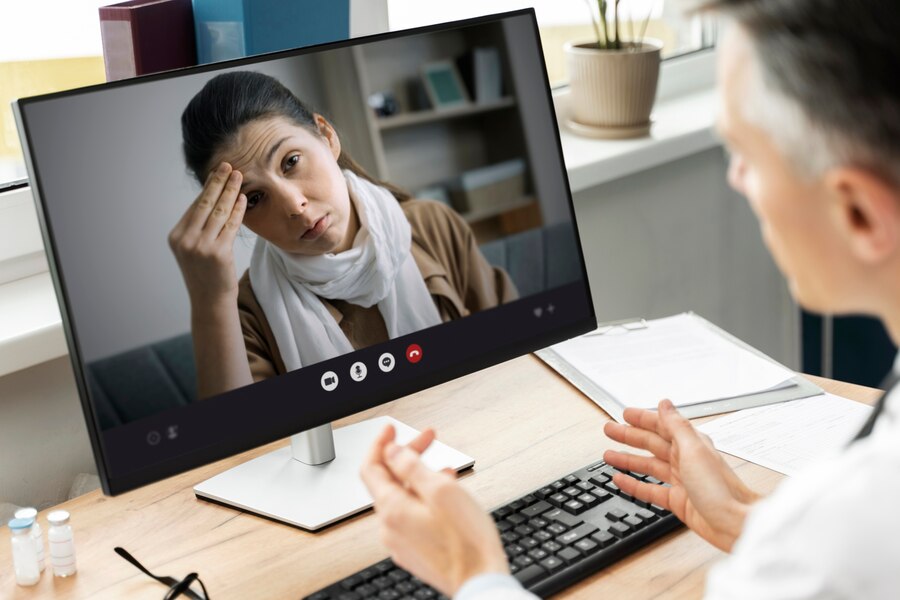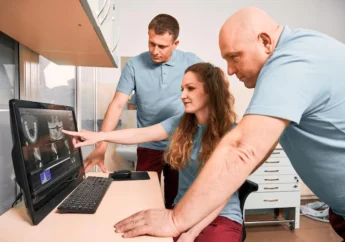How Online Counseling Can Help With Addiction
by Mashum Mollah Health Care Services Published on: 23 November 2023 Last Updated on: 06 December 2023

Addiction is a pervasive issue that affects millions of people worldwide, with far-reaching physical, psychological, and social consequences. Whether it’s substance abuse, gambling addiction, or problematic behaviors related to technology, overcoming addiction is an incredibly challenging journey. So, can online counseling help?
Fortunately, technological advancements have opened up new avenues for treatment and support, including online addiction counselling. In this comprehensive blog post, we will delve into the myriad ways in which digital counseling can provide invaluable assistance to individuals grappling with addiction.
The Prevalence Of Addiction
Before delving into the potential of online counseling, it’s essential to understand the prevalence of addiction and its diverse manifestations. Addiction can manifest in various forms, including but not limited to:
- Substance Abuse: The misuse of drugs or alcohol, leading to physical and psychological dependence.
- Gambling Addiction: Compulsive gambling behaviors that result in significant financial and personal consequences.
- Behavioral Addictions: These can include addiction to technology (e.g., gaming or social media), food, or even work.
- Process Addictions: These involve compulsive behaviors such as shopping, sex, or exercising.
Addiction knows no boundaries; it affects people of all backgrounds, ages, and socioeconomic statuses. Understanding the complexity and diversity of addiction is crucial when considering the role of online counseling in its treatment.
The Evolution Of Online Counseling
Online counseling, or teletherapy or telecounseling, has developed considerably in recent years. It leverages digital technology to connect individuals in need with licensed therapists and counselors who can provide support, guidance, and therapeutic interventions. Digital counseling is accessible through various platforms, including video conferencing, messaging apps, and online chat.
Now, let’s explore how counseling can be a game-changer in the battle against addiction:
Accessibility And Convenience
One of the primary advantages of online counseling is its accessibility and convenience. Addiction can make it challenging for individuals to seek help in traditional face-to-face settings due to various reasons, including stigma, fear, or logistical obstacles.
Online counseling eliminates many of these barriers by allowing individuals to access professional support from the comfort and privacy of their own homes. This convenience is particularly valuable for those hesitant to enter a physical counseling office.
Anonymity And Reduced Stigma
The shame and stigma associated with addiction can be overwhelming, often preventing individuals from seeking help. Online counseling offers anonymity that can help reduce these feelings of embarrassment.
Clients can communicate with their counselors using secure and confidential platforms, and they don’t have to worry about running into someone they know in a waiting room. This increased privacy can make it easier for individuals to open up about their struggles and receive the support they need.
Flexible Scheduling
Addiction doesn’t adhere to a 9-to-5 schedule, and cravings or crises can strike at any time. Online counseling offers flexible scheduling options, allowing clients to connect with their counselors when needed.
This flexibility can especially benefit individuals with busy lives or irregular work hours. It ensures that support is available when most needed, which can be crucial in preventing relapse.
A Wide Range Of Specialists
Online counseling provides access to a wide range of specialists and therapists with expertise in addiction treatment. Regardless of your specific addiction or related issues, you can find a counselor who specializes in your area of concern. This specialization ensures that you receive tailored treatment and support that addresses the unique aspects of your addiction.
Evidence-Based Approaches
Effective addiction treatment often relies on evidence-based therapeutic approaches, and online counseling platforms often incorporate these approaches into their programs. Two well-established methods for addiction treatment are Cognitive Behavioral Therapy (CBT) and Motivational Enhancement.
- Cognitive Behavioral Therapy (CBT) helps individuals identify and change negative thought patterns and behaviors associated with addiction. Through CBT, clients learn to recognize triggers and develop coping strategies to manage cravings and prevent relapse.
- Motivational Enhancement focuses on enhancing a person’s motivation to change and commit to recovery. This approach helps individuals clarify their goals, explore the benefits of sobriety, and build the self-efficacy needed for lasting change.
Online counseling offers access to licensed therapists trained in these evidence-based techniques, ensuring clients receive effective, evidence-based treatment.
Support Groups And Peer Interaction
Online counseling can facilitate participation in support groups and peer interaction. Connecting with others facing similar challenges can provide valuable emotional support and motivation. Many online counseling platforms offer virtual support groups and forums where individuals can share their experiences, gain insights, and build community. These connections can be vital in maintaining long-term recovery.
Relapse Prevention And Coping Strategies
Relapse is a common challenge in addiction recovery. Online counseling equips individuals with relapse prevention strategies and coping skills to help them stay on track. Counselors work with clients to identify triggers and develop effective ways to manage cravings and stress. These skills are essential for building resilience and preventing relapse.
Continued Support And Follow-Up
Recovery from addiction is an ongoing process that requires continuous support. Online counseling allows for regular follow-up sessions and ongoing support, even after the initial phase of treatment. This extended support can make a significant difference in the long-term success of recovery efforts. It provides a safety net for individuals as they navigate the challenges of maintaining sobriety in their day-to-day lives.
Cost-Effective Option
Traditional in-person counseling can be expensive, and insurance coverage may vary. Online counseling often offers cost-effective options, making it more accessible to a broader range of individuals. This affordability ensures that financial concerns do not serve as a barrier to seeking help.
Geographic Accessibility
In some cases, individuals seeking addiction treatment may live in remote or underserved areas where access to in-person counselling is limited. Online counselling transcends geographical barriers, allowing individuals in rural or isolated locations to connect with qualified therapists. This is especially critical in ensuring that everyone has access to the support they need regardless of location.
The Bottom Line
Addiction is a complex and challenging condition, but online counseling has emerged as a valuable tool in the journey toward recovery. With accessibility, anonymity, flexibility, a range of specialized therapists, evidence-based approaches, peer support, relapse prevention strategies, continued support, and cost-effectiveness, online counselling plays a crucial role in helping individuals achieve and maintain sobriety.
If you or someone you know is struggling with addiction, consider exploring online counseling as a viable option on the path to recovery. Digital counseling isn’t just a technological innovation; it’s a lifeline for those seeking hope and healing in the face of addiction. Embracing these virtual resources can empower individuals to take control of their lives and embark on the challenging but rewarding journey toward lasting recovery.
Read Also:



































































































